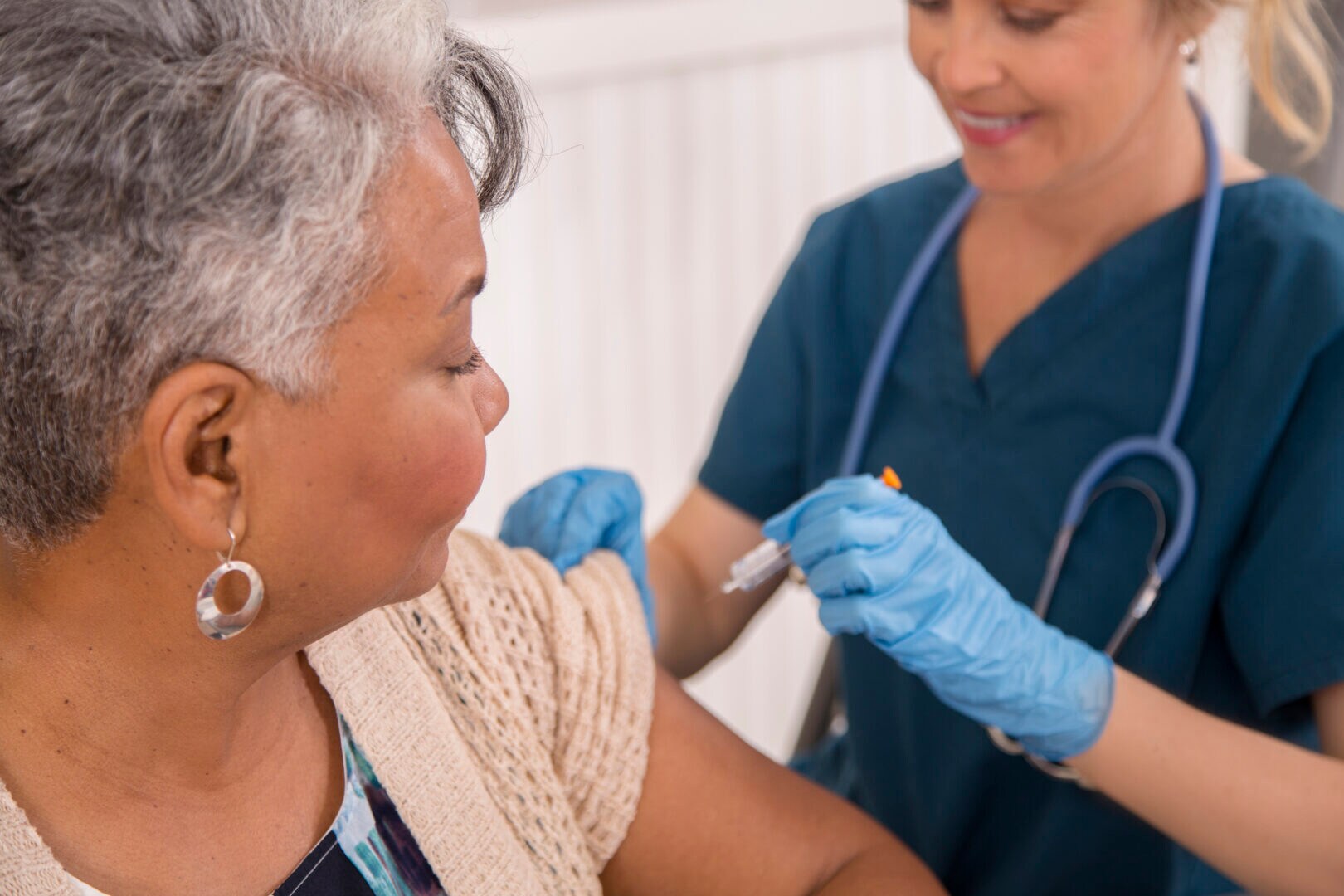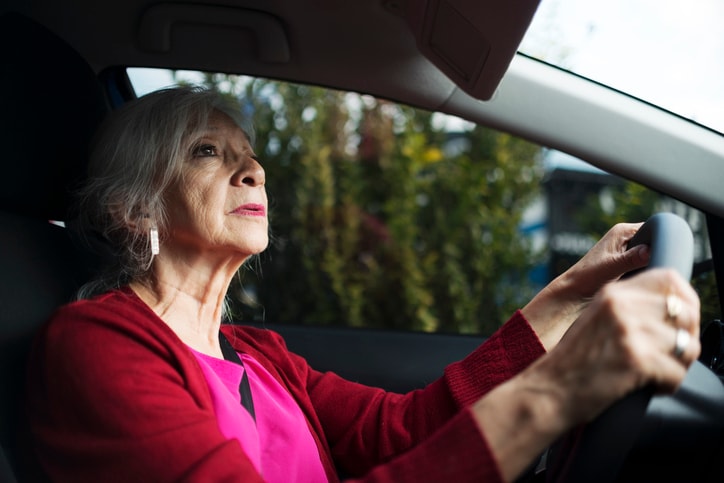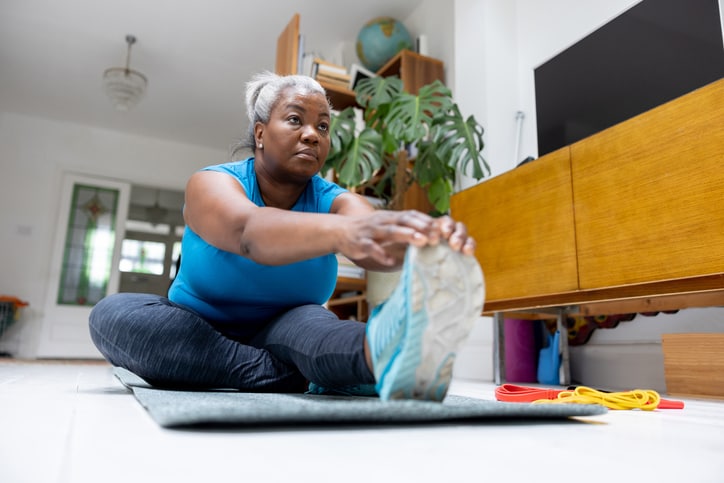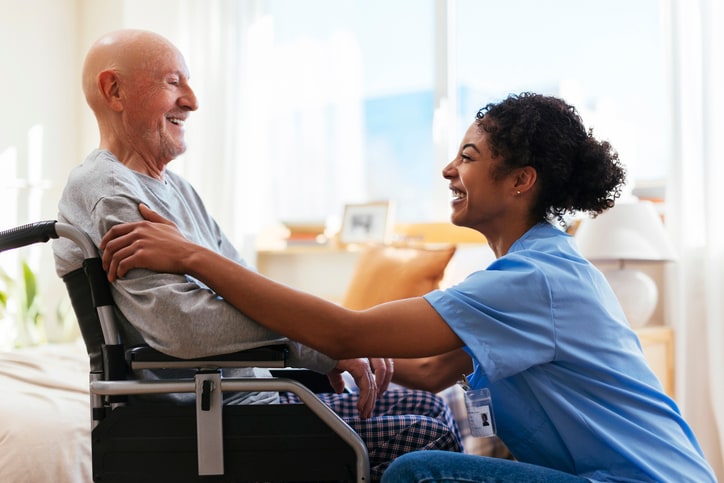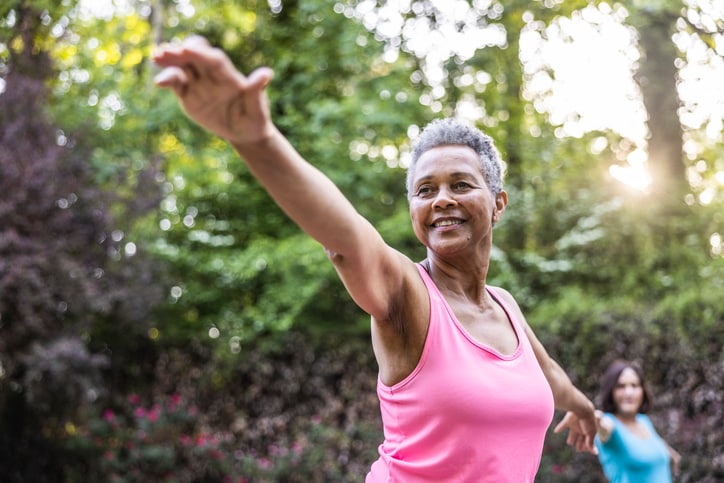Last month, following U.S. Food and Drug Administration (FDA) authorization, the Centers for Disease Control and Prevention (CDC) announced that individuals over 50 and folks who are immunocompromised are now eligible to receive a second booster shot — or fourth total vaccine — of both Pfizer and Moderna’s COVID-19 shots. As long as it’s been at least four months since receiving the initial booster shot (aka a third total vaccination for COVID-19), older adults and immunocompromised individuals are cleared to get boosted immediately.
For those people who received a booster this past fall or winter, getting another shot might seem a bit premature or even unnecessary. But according to medical researcher Dr. J. Wes Ulm the additional protection is coming at a much-needed time.
“The second COVID-19 booster shot is needed in light of findings of waning immunity against SARS-CoV-2, both for previously vaccinated and boosted individuals and those with immune protection from a previous infection, or natural immunity,” he explains.
The FDA is basing their decision off of, for the most part, data from Israel suggesting a second booster administered four months after an initial booster can cut the risk of serious illness, hospitalization and death caused by COVID-19 in adults over 60.
Plus, a new variant has spurred scientists to action: BA.2, a subvariant of the Omicron variant, which the World Health Organization notes is steadily on the rise across the globe. And while Ulm explains that the new booster isn’t necessarily tailored to target BA.2 (or any subsequent variant), the additional immunity can help a person’s immune system better fight infection.
A booster, as the term suggests, helps to prime a person’s immune memory further, he explains. “It’s a similar technique for many other immunization regimens, and with a new wave of the BA.2 subvariant now looming, a second booster shot is important, especially for vulnerable populations.”
Here’s what seniors and caregivers need to know about the second COVID-19 booster.
“The second COVID-19 booster shot is needed in light of findings of waning immunity against SARS-CoV-2, both for previously vaccinated and boosted individuals and those with natural immunity.”
— DR. J. WES ULM, MEDICAL RESEARCHER
If I’m a senior or the person I’m caring for is, is a second booster shot for COVID-19 necessary?
All individuals over the age of 65 should get the booster vaccine, regardless of their health status, stresses Dr. Ankur Patel, chief medical officer at Tabula Rasa HealthCare. That’s because seniors are more prone to get sick from COVID-19, and when they’re infected, the risk of getting hospitalized and requiring intensive care or a ventilator goes up, says Patel.
Since the start of the pandemic, Americans aged 85 and older have accounted for the most deaths from COVID-19. Overarchingly, 93% of the one million COVID-related deaths in the U.S. have been in people aged 50 and up.
That being said, Patel says that a booster shot can minimize these dangerous odds considerably. “During the recent omicron surge, patients who have had a booster dose were 21 times less likely to die, and seven times less likely to be hospitalized from COVID-19, than unvaccinated patients,” he points out.
Plus, an older adult’s immunity to infection is likely to wane quicker than those who are younger or who are not immunocompromised, adds Patel.
And if a senior has heart disease or perhaps lung disease, obesity, diabetes or any other health condition, the risk of serious, life-threatening infection from COVID-19 skyrockets, according to the CDC. This makes additional boosting even more critical.
What if my older loved one refuses to get the shot?
Despite the first COVID-19 booster shot being widely available for Americans since last fall, less than 70% of Americans aged 65 and over have received it.
“[A lack of willingness to get vaccinated] represents an ongoing challenge for caregivers, family members and public health officials,” says Ulm. But ensuring vaccine skeptics get boosted (or receive initial vaccinations in many cases) is crucial, he says.
Here’s how to go about encouraging them to do so:
1. Hear them out.
First things first: Respect and listen to their concerns, encourages Ulm. Be sure to respond in a neutral way that’s not disparaging, insulting or imposing, he says.
2. Find out what their hesitancy is.
“Empathize with their concerns and ask for a specific reason why they don’t want the vaccine,” Dr. Patel recommends.
If they’ve read something concerning on social media, lead them to evidence- and fact-based materials on the Centers for Disease Control and Prevention (CDC) website. Do they believe that, since they already had COVID-19, they have natural immunity? The Mayo Clinic notes that protection from COVID-19 is stronger when a person is vaccinated as opposed to if they’ve simply had the virus, and they point out that, according to a recent study, unvaccinated people who already had COVID-19 are more than twice as likely as fully vaccinated people to get reinfected with COVID-19.
3. Remind them of the risk-to-benefit ratio associated with vaccination.
“The most effective argument, I’ve found, is that while the long-term effects of the shot are indeed unknown, so are those of COVID-19 infection,” says Ulm. “But based on what we do know, the booster is a far safer and more effective path to achieving immunity.”
The only situation in which a person should not receive a COVID-19 vaccination, says Patel, is if a doctor has specified that person shouldn’t be vaccinated. “Overall, the vaccine is safe,” he stresses. However, he points out that it is contraindicated to patients with severe allergic reactions, such as anaphylaxis. Encourage your older loved one to speak to their physician if they have concerns.
The bottom line: If a person you’re caring for is hesitant about receiving the second COVID-19 booster or is hesitant about getting vaccinated in general, approach the situation with empathy and understanding, but continue to urge that person to get the shot.
Where — and how — can a senior get vaccinated?
If you or your older loved one is over the age of 50 or under 50 but immunocompromised, and it’s been at least four months since a first booster shot, you or they are eligible for a second booster shot. You can find a location offering second booster shots here.
Be sure to bring your vaccination status card, and note that vaccination is free.
